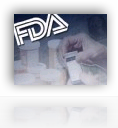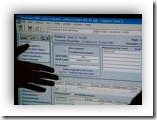I don’t think in view of the current events, there was a lot of choice here for the FDA, and we do need to know that the quality of both our food and pharmaceutical products is good.
One thing in particular that springs to mind for me here here is perhaps some use of business intelligence for monitoring. This is not a cure all for the entire process, but technology can aid and offer some nice assistance here. A reporting function would need to be set up to automatically report back to a central agency on criteria established for each drug or food product. At the receiving end, anything out of tolerance would be immediately sent to an alert. Now granted, this should be done locally from every plant, but when you can’t physically have agents in place at every factory all the time, this could offer some real relief and help.
With today’s speed of data transmissions, a server farm could be set up to monitor this type of activity and before an over seas factory began to export to the US, this would be a prerequisite to be established. Each lot before packaged would send the chemical content back to the central gathering agency and report in, with both the US agency and the local factory itself having the information at hand.
Again, this comes back to adding some new software and algorithms to the process, but computers could provide this information in a couple of seconds. Audit trails would also be there to allow for checking back on submissions. A bank of sophisticated server farms could do the work. This would also tend to build product credibility as well if everyone knows up front that the chemical content was being reported before the end packaging occurs. Again, not to replace an actual physical inspection all together, but, it would also stand to make those inspections much more information rich and valuable and create safe consumable products.
 We do so much today by remote transmissions with information reporting, why not put in in place and use it where it is vital. This could also be done globally too, with each country receiving reports on products they import from other countries. It would sure beat some of the guesswork we see out there today, not to mention illnesses and death from products that are tainted or contaminated. With the global economy changing every day, it makes sense to know what we are getting and it is impossible to physically monitor all the systems without using some modern day technology.
We do so much today by remote transmissions with information reporting, why not put in in place and use it where it is vital. This could also be done globally too, with each country receiving reports on products they import from other countries. It would sure beat some of the guesswork we see out there today, not to mention illnesses and death from products that are tainted or contaminated. With the global economy changing every day, it makes sense to know what we are getting and it is impossible to physically monitor all the systems without using some modern day technology.
A secondary thought here too is to ensure that all products carry a label showing the city, country, etc. of where the product was manufactured so we don’t incur the long time delays in figuring out which lot went where, no more blind shipping documents as they exist today. Wonder why this process has not been considered yet? BD
The melamine scandal is now weeks old, but FDA officials said it has taken that long to comply with legal requirements that detention orders be scrupulously backed by evidence. A national poll released earlier this week by Consumers Union found that the public wants foreign food-producing facilities inspected as frequently as domestic ones: about once a month. The FDA has nowhere near the number of inspectors to fulfill that desire, and instead mainly relies on U.S. food companies to require that their foreign supplier maintain high standards.



0 comments :
Post a Comment